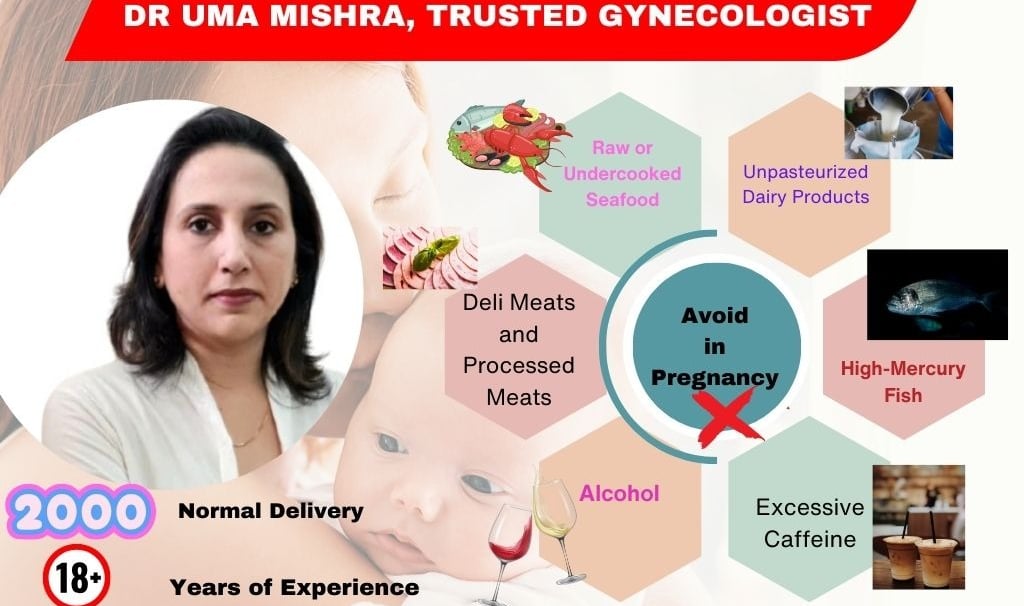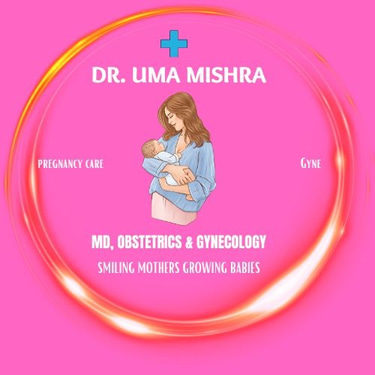Navigating Pregnancy Nutrition: Foods to Avoid for a Healthy Pregnancy
Pregnancy is a time of great anticipation and joy, accompanied by heightened attention to one's health and well-being. Nutrition plays a crucial role during this period, as the choices made can directly impact both the mother and the developing baby. As gynecologists, we often guide expectant mothers on making informed dietary choices. In this article, we explore foods that should be avoided during pregnancy from a gynecologist's perspective.
Dr Uma Mishra, Gynecologist
2/23/20242 min read


My post content
Pregnancy Nutrition: Foods to Avoid for a Healthy Pregnancy
Dr Uma Mishra, Gynecologist
Pregnancy is a time of great anticipation and joy, accompanied by heightened attention to one's health and well-being. Nutrition plays a crucial role during this period, as the choices made can directly impact both the mother and the developing baby. As gynecologists, we often guide expectant mothers on making informed dietary choices. In this article, we explore foods that should be avoided during pregnancy from a gynecologist's perspective.
Raw or Undercooked Seafood:
Gynecologists universally advise against the consumption of raw or undercooked seafood during pregnancy. Raw fish, such as sushi or oysters, can harbor harmful bacteria and parasites that may pose risks to both the mother and the baby. Opt for thoroughly cooked seafood to minimize these risks.
Unpasteurized Dairy Products:
Unpasteurized milk and dairy products should be avoided due to the potential presence of harmful bacteria, such as Listeria. Gynecologists recommend choosing pasteurized options to reduce the risk of foodborne illnesses that could lead to complications during pregnancy.
Deli Meats and Processed Meats:
Deli meats and certain processed meats are often associated with an increased risk of Listeria contamination. Gynecologists caution against consuming these products unless they are heated thoroughly. Heating deli meats until steaming can help eliminate potential bacteria.
High-Mercury Fish:
While fish is an excellent source of omega-3 fatty acids, certain types contain high levels of mercury that can be harmful to the developing nervous system of the fetus. Gynecologists advise against the consumption of shark, swordfish, king mackerel, and tilefish. Instead, choose lower-mercury options like salmon, trout, and shrimp.
Excessive Caffeine:
Gynecologists recommend limiting caffeine intake during pregnancy, as excessive amounts have been associated with an increased risk of preterm birth and low birth weight. While a moderate amount of caffeine (about 200-300 mg per day) is generally considered safe, it's essential to be mindful of sources like coffee, tea, and certain sodas.
Alcohol:
The unanimous stance among gynecologists is the complete avoidance of alcohol during pregnancy. Alcohol consumption has been linked to developmental issues and birth defects. To prioritize the health of the baby, it's best to abstain from alcoholic beverages throughout the entire pregnancy.
Highly Processed Foods and Soft Cheeses:
Highly processed foods, often laden with preservatives and additives, should be consumed in moderation. Soft cheeses made from unpasteurized milk, such as Brie and feta, may harbor Listeria and should be avoided. Opt for hard cheeses made from pasteurized milk.
Raw or Undercooked Eggs:
Gynecologists advise against consuming raw or undercooked eggs due to the risk of Salmonella contamination. This includes avoiding raw cookie dough and homemade Caesar dressings that may contain raw eggs. Choose pasteurized eggs and thoroughly cook any dishes containing eggs.
Excessive Vitamin A:
While vitamin A is crucial for fetal development, excessive intake can be harmful. Gynecologists recommend avoiding high doses of vitamin A supplements and being cautious with foods rich in retinol, such as liver, as they may contribute to vitamin A toxicity.
Artificial Sweeteners:
While many artificial sweeteners are considered safe in moderation, gynecologists advise against excessive consumption. Saccharin, for example, should be limited due to concerns about potential adverse effects on the fetus.
As gynecologists, our primary concern is the health and well-being of both the expectant mother and the developing baby. By avoiding certain foods and making informed dietary choices, pregnant women can create a nutritionally balanced environment conducive to a healthy pregnancy. It's crucial to consult with healthcare providers for personalized advice tailored to individual health conditions and circumstances. Following these recommendations will contribute to a smoother and healthier pregnancy journey.
Consult Dr Uma Mishra, MD, Gynecologist online or at clinic for latest Pregnancy Care.
